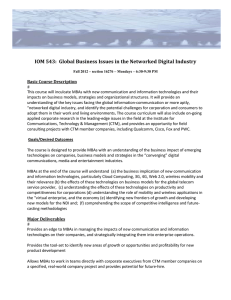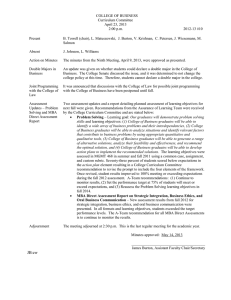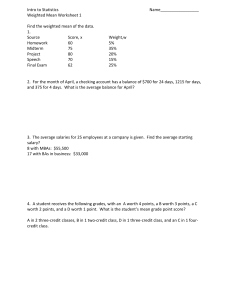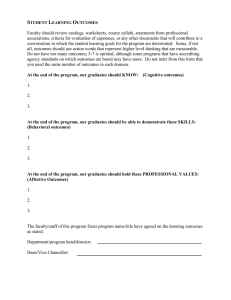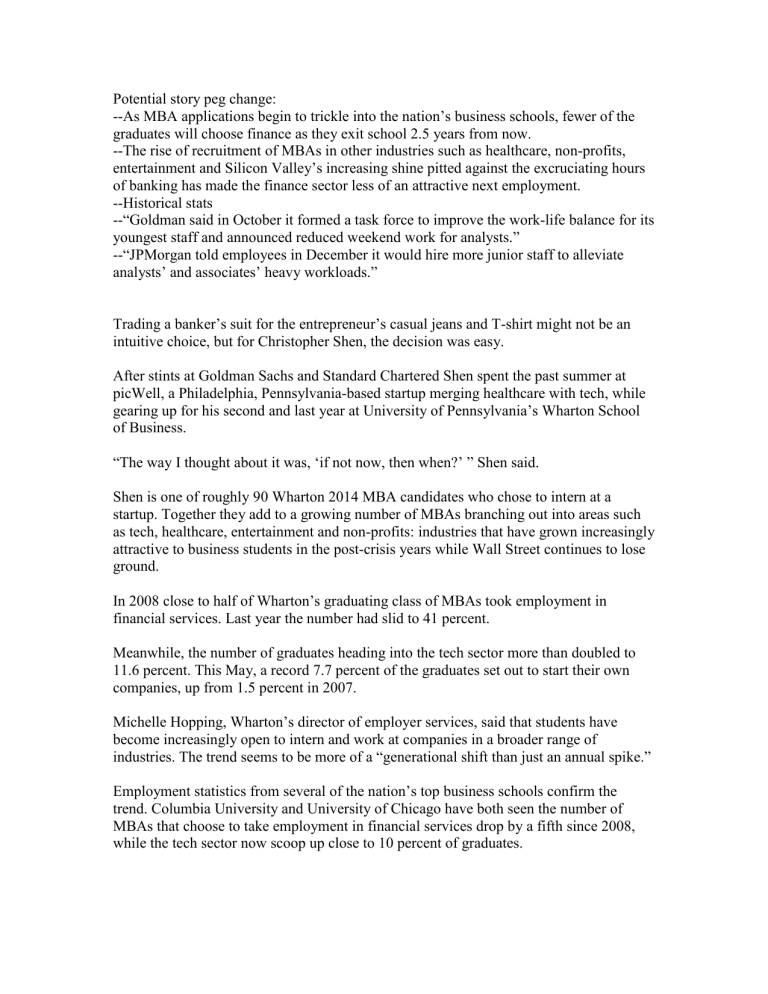
Potential story peg change: --As MBA applications begin to trickle into the nation’s business schools, fewer of the graduates will choose finance as they exit school 2.5 years from now. --The rise of recruitment of MBAs in other industries such as healthcare, non-profits, entertainment and Silicon Valley’s increasing shine pitted against the excruciating hours of banking has made the finance sector less of an attractive next employment. --Historical stats --“Goldman said in October it formed a task force to improve the work-life balance for its youngest staff and announced reduced weekend work for analysts.” --“JPMorgan told employees in December it would hire more junior staff to alleviate analysts’ and associates’ heavy workloads.” Trading a banker’s suit for the entrepreneur’s casual jeans and T-shirt might not be an intuitive choice, but for Christopher Shen, the decision was easy. After stints at Goldman Sachs and Standard Chartered Shen spent the past summer at picWell, a Philadelphia, Pennsylvania-based startup merging healthcare with tech, while gearing up for his second and last year at University of Pennsylvania’s Wharton School of Business. “The way I thought about it was, ‘if not now, then when?’ ” Shen said. Shen is one of roughly 90 Wharton 2014 MBA candidates who chose to intern at a startup. Together they add to a growing number of MBAs branching out into areas such as tech, healthcare, entertainment and non-profits: industries that have grown increasingly attractive to business students in the post-crisis years while Wall Street continues to lose ground. In 2008 close to half of Wharton’s graduating class of MBAs took employment in financial services. Last year the number had slid to 41 percent. Meanwhile, the number of graduates heading into the tech sector more than doubled to 11.6 percent. This May, a record 7.7 percent of the graduates set out to start their own companies, up from 1.5 percent in 2007. Michelle Hopping, Wharton’s director of employer services, said that students have become increasingly open to intern and work at companies in a broader range of industries. The trend seems to be more of a “generational shift than just an annual spike.” Employment statistics from several of the nation’s top business schools confirm the trend. Columbia University and University of Chicago have both seen the number of MBAs that choose to take employment in financial services drop by a fifth since 2008, while the tech sector now scoop up close to 10 percent of graduates. Stanford, on the rim of Silicon Valley, doubled its number of graduates getting jobs in the tech sector to almost one quarter of the 2012 class. Roughly one of every three MBAs from University of California-Berkeley went into tech after their 2012 graduation, up from a quarter in 2008. Columbia Business School associate dean Regina Resnick credits social media for forcing companies to present themselves more candidly to attract talent. As a result, a large budget for on-campus recruitment is no longer the only key to getting the attention of graduates. Hopping echoes her colleague. “A lot of students who are now MBAs were coming out of undergrad when the market crashed,” Hopping said. “I think there was a realization that there is a risk with joining these big firms.” When the financial crisis unraveled in the fall of 2008, many financial institutions dialed down or entirely froze hiring programs that had swallowed as many as half of all MBAs from prestigious east coast schools in prior years. While the industry has largely recovered since and remain big recruiters of MBAs, trading and investment-banking activity have declined and new capital rules put a hamper on returns, which have reverberated in the rosters of some companies. Reuters reported earlier this year that Goldman Sachs Group Inc has let go of 9 percent of its employees in the past two years, while Morgan Stanley has reduced headcount by 12 percent since 2010. Citibank has shed its global workforce by almost a third since 2007, according to public filings. Anirudh Vemprala, a second-year MBA candidate at Wharton, believes that MBA graduates will continue to disperse across a broad set of industries, disregarding of how the future of the financial industry unfolds. “MBA programs help you hone your own craft,” Vemprala said.
